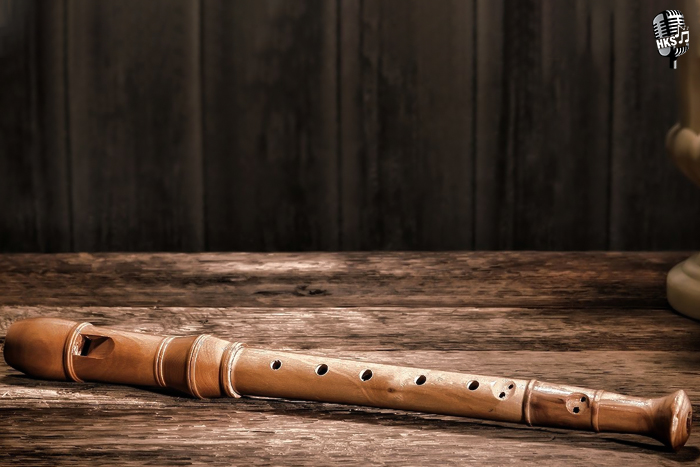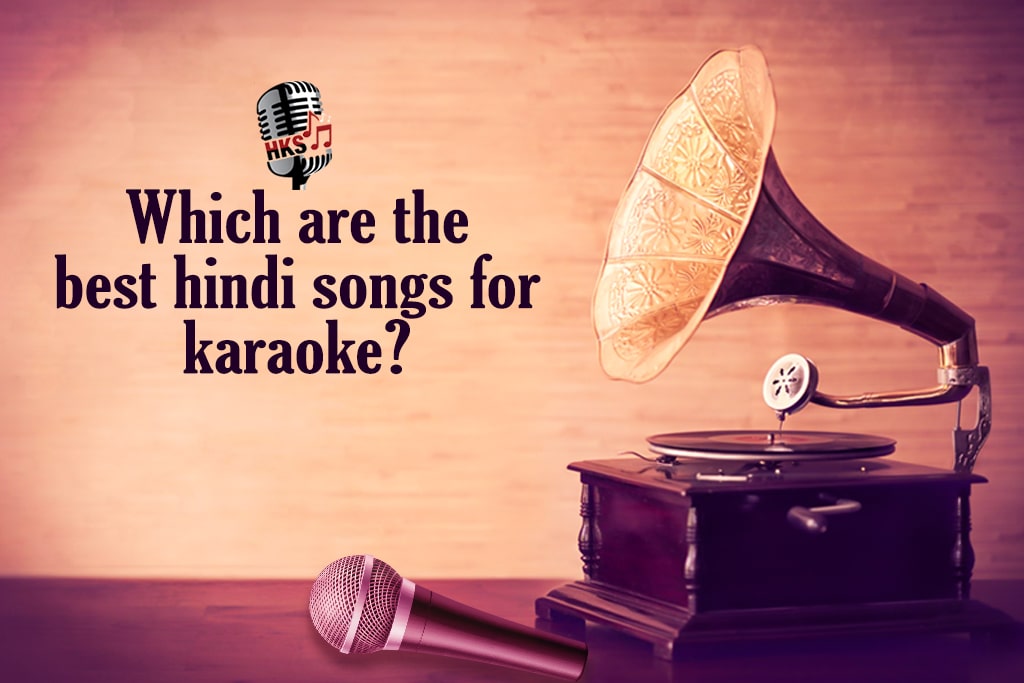Ramzaan Store Wide Sale | 35% Off | USE COUPON CODE - RAMADAN35
.jpg)
we all wish to learn instruments. For that reason, no matter how old we are, there is that one instrument kept in our storerooms for years, unused, unusable (now). But there is something subtle and necessary to know, but most people tend to ignore it; instruments can be learned at any age. You have to believe it, some aged people start to learn music, because it is a way to attain peace of mind, and your mind's peace is not something that you cannot attain after a certain age, you have to keep working for it, and music is just the way.
Thinking about music, most of us tend to sing and hit Karaoke Songs.
Although, there are many Impressive Karaoke Tracks For Beginners, sometimes, it becomes difficult for us to sing because of specific reasons. So, in that case, the next thing you can think of is learning an instrument.
An instrument is as good as singing because, without the music, singing may sound empty; therefore, you should never doubt yourself if you play an instrument and not sing. And to be honest, playing an instrument only makes you more patient and better at coordinating your body parts for various reasons. There are numerous advantages to how instruments benefit you.
Once you start playing an instrument, subtle positive changes happen to you. Some of them are;
- Stress Reduction
- Increasing Creativity
- Producing Patience
These three things are one of the many benefits that playing an instrument gives you, and if you look closely, these are also the things required most in today's environment where achieving mental peace is the most important thing (and the hardest one too).
Now that you have decided to play an instrument, the next big riddle is choosing which instrument to learn. There are a lot to choose from, but all have different styles, pros, and cons. So let us now dig deeper into the topic.
There are types of instruments; before we get into it, you should know what these types are.
- Stringed Instruments
These are the ones that have strings attached and produce sounds of different notes when plucked (by hand, picks, or hammers). The most common examples would be guitars, sitars, grand and classical pianos).
- Wind
These instruments work directly or indirectly on the windblown, producing the notes. Examples would be flute and similar instruments.
- Percussion
The way how percussive instruments work is relatively easy to understand. You "beat" the skin of the instrument using either your hand (tabla) or sticks (drums).
Which instrument type is right for you?
Now is when you have to think about the type of instrument you might choose to learn and play. So we would discuss a few instruments of each type in detail to do that.
Stringed Instruments
- Guitars

When it comes to guitars, we all know what it is, but learning them is a different task. A guitar has six strings (most of the time), each tuned to a different note. The strings are plucked, and different notes are played together by holding down the frets to produce chords. Acoustic guitars have hollow bodies constructed of a variety of wood species. Rosewood, mahogany, basswood, and other woods are the most common. In the typical tuning of eBGDAE, an acoustic guitar usually has six strings, which the player can adjust. There are also 12 string acoustic guitars, which allow you to pluck two strings at once and play octaves on each note.
When a string is plucked, the sound vibrates throughout the guitar's hollow body, making it audible to everyone. As a result, no extra amplifiers are necessary when playing an acoustic guitar. However, if your guitar has a pickup, or if you use an external clip-on pickup, you can attach it to one.
Steel strings are used in acoustic guitars, typically have 19 frets, each playing a different note.
The majority of individuals choose acoustic guitars as their first instrument since they are less expensive and do not require the purchase of amplifiers or wires. However, the thick gauge of the strings and the bronze substance used to cover them can be challenging to play.
Pros of learning a guitar.
- It Isn't That Difficult to Learn guitar.
In contrast to other instruments, the guitar is a relatively simple instrument to learn. It can be difficult at first, but the appropriate procedure becomes second nature very soon if you get the hang of it.
- You have the option to personalize your guitar-learning experience.
You may study acoustic, telecoustic, or electric guitars as well. You can focus on learning basic chords, fingerpicking, power chords, or whatever else you like. To learn guitar chords, you don't need any prior understanding of music theory, which is a lifesaver for individuals who didn't grow up playing an instrument.
Cons of learning a guitar.
- Guitars may be rather costly.
Guitars are a costly instrument, and if you want to learn to play, you'll need to set up a few hundred dollars for a solid starting guitar. But, of course, there are guitars of varied quality and beginners' guitars available, so you don't have to buy a professional-grade guitar straight once.
- It Takes Time & Patience to Learn to Play the Guitar
It will take time to learn how to play the guitar. Therefore, to achieve steady development with the guitar, you'll need to devote a significant amount of time to it. If this is a hobby you like, forcing oneself to practice every day won't be too harsh.
Wind Instruments
- Flute

The flute is a woodwind instrument. Flute is a reedless wind instrument that produces music by moving air through an aperture unlike woodwind instruments with reeds. In Hornbostel–Sachs' instrument categorization system, flutes are classified as edge-blown aerophones. A flutist or flutist is a musician who plays the flute.
When air is directed across a hole, the air vibrates, producing music. The airstream creates a Bernoulli or siphon. The air in the flute's resonant chamber, which is usually cylindrical, is stimulated as a result. By opening and closing holes in the flute's body, the flutist may change the pitch of the sound he produces, the resonator's effective length, and its related resonance frequency. A flutist can change the pitch by altering the air pressure without opening or closing any holes by pushing the air in the flute to resonate at a harmonic rather than the fundamental frequency.
Pros of learning a flute.
- It's a Multi-Functional Instrument
The flute's adaptability as a musical instrument is one of its most significant advantages. You may play in any musical ensemble if you are a flutist. With other musical instruments, though, this isn't always the case. As a result, as an instrumentalist, the flute gives you many options.
- It provides a full-body workout.
The flute necessitates the use of your entire body when learning to play. To play it well, you need to start with the right stance. Second, it strengthens your lungs by requiring you to breathe in and out regularly while playing. To play it effectively, you'll also require core strength.
Cons of learning a flute.
- Learning Is Difficult For Beginners
To get a tone when studying the flute, you'll need to know how to form your lips and blow through the mouthpiece properly. You will discover how to progress from the lowest to the highest notes as you progress through your studies. You'll find it difficult to blow when you're practicing outside because the wind will be a problem. Furthermore, finding the proper tone is difficult. To get the perfect tone, you must blow into the mouthpiece correctly.
- Tuning Is Difficult
If you're in one of the groups, make sure your flute is tuned correctly. It can't be fun to tune the flute to the correct pitch because it's so high-pitched. On the other hand, it's much more aggravating if it's out of tune. As a result, you'll be able to fine-tune the music before you begin performing it. In addition, the flute is sensitive to temperature changes. As a result, tuning it is a difficult task.
Percussive Instruments
- Drums

There isn't much to talk about the functioning of a drum. A drumkit usually consists of several different types of drums that are played together by a single person.
When the drum skin is hit, the force produces a sound that reverberates depending on what type of drum is struck. For example, a floor tom has a deep body, producing a low, lasting sound.
Pros of learning drums.
- A Complete Workout (Again)
Playing the drumkit is no easy task; it requires high concentration, and a lot of physical power is developed as you get better at it.
- Better Coordination
While playing a drumkit, you have to hit many different things at once in different places; it may seem a little uneasy at first, but slowly, you get a lot better at it, and the coordination between your hands AND your legs gets a lot better.
Cons of learning drums
- Drums are expensive
The most basic drumkits can be expensive to buy, making you spend a lot more than you plan to. Also, the maintenance isn't very cheap, either.
- Difficult to carry around
A basic drumkit has at least five different drums, which you physically cannot carry at once; you will have to take them in a car everywhere you go, and then setting up takes extra time.
So! These were some of the instruments that you can choose to learn. Now that you know how fun playing instruments can be, why not test your hands on one of these!
Happy Playing!


.jpg)





Rohan Kapoor
4 years ago
I am also in agreement that Understanding a Musical instrument is something that every individual should at least knowledge about. Growing up, I played Flute. I continued my practice and commitment up until the sixth grade. At this time, I decided to give up playing, and it is a decision I still regret. I will never take those early years for granted, however, and believe that learning how to play the Flute has taught me many skills unrelated to music. Very relatable post!
Anirudh
4 years ago
The musical instrument is something that every individual should at least knowledge about. Mostly I love to play the Flute and the details or content you provide me was superb about flute especially the pros and cons. Informative Blog Guys.., Also right now I am learning Piano hope you guys provide the info for the same in next blog.
Mansi Soni
3 years ago
There are pros to every instrument, but to me, drums are the best.
Triveni Vishwkarma
3 years ago
There is no doubt that music relaxes our souls, and we should all be able to play instruments.
Rahul Adhe
3 years ago
I enjoyed reading your blog, it was well written!
Pankaj Mahajan
3 years ago
True words, music can make a noticeable difference in our lives through positive changes.
Subodh Sharma
3 years ago
I enjoy playing different instruments, and I consider them to be friends. And it's a lovely blog; I like it.
manveer dangi
2 years ago
valuable information about different musical instruments and highlights the benefits of learning to play an instrument.